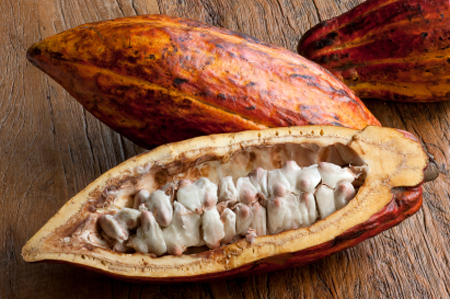Disease Lowers Ghanaian Cocoa Output, Processors Must Import -Sources
Category: Cocoa

(Reuters) – Bad weather and crop disease have hampered the cocoa crop in second-largest producer Ghana, forcing processors there to import beans at rates higher than usual, sources familiar with the matter told Reuters.
An outbreak of crop-destroying swollen shoot disease and a dry spell that reduced bean sizes have trade houses lowering their estimates for Ghanaian production to between 800,000 and 850,000 tonnes, from earlier forecasts for a 900,000-tonne harvest.
“It’s hard to predict but it is no secret that the mid-crop harvest will be bad this year,” a source at Cocobod, the country’s cocoa regulator, told Reuters.
Because of the reduced supply, processors have turned to sourcing beans from neighbor and top producer Ivory Coast.
“We allowed some grinders to import beans from neighboring countries to compensate the lack of volumes they might have this year,” said a source at Ghana’s Cocoa Marketing Co.
Top cocoa processors in Ghana include Barry Callebaut, Cargill, NICHE, and Olam.
“We already anticipated a drop in production which is why we asked for an authorization to import Ivorian cocoa beans as we have been doing for years,” said a source with Barry Callebaut, who expected the company to import 20,000 to 25,000 tonnes.
Given their relative scarcity, Ghanaian beans have grown more expensive on the international market.
At the start of the cocoa season in October, Ghanaian beans were about 52 pounds per tonne more expensive than beans from Ivory Coast on the European market. As of last week, the premium was about 110 pounds per tonne, according to data from Knowledge Charts, a unit of Commodities Risk Analysis in St. George, Utah.
These differentials translate to about 2,135 pounds per tonne for Ghanaian beans and around 2,026 for Ivorian beans based off Wednesday’s closing price of 1,850 pounds per tonne .
Because of the reduced supplies, some importers were anticipating delays to shipments out of Ghana.
“The risk is that all contracts between March and June won’t be delivered on time and will be pushed back until the next season because even the mid-crop won’t be good enough to honor all the contracts,” said one European trader.
One U.S. importer said some shipments from Ghana had already been delayed.
Swollen shoot disease is an incurable virus that at the outset, reduces crop yields before killing trees within 2-3 years. While Ghana’s swollen shoot situation has worsened this season as the virus has been a persistent problem in the region.
Although farmers can uproot infected trees and replace them with virus-resistant seedlings, replanting can be expensive and farmers earn no income on the crop while waiting for trees to mature, said farmer Patrick Oppong, who replanted his trees in 2012.

